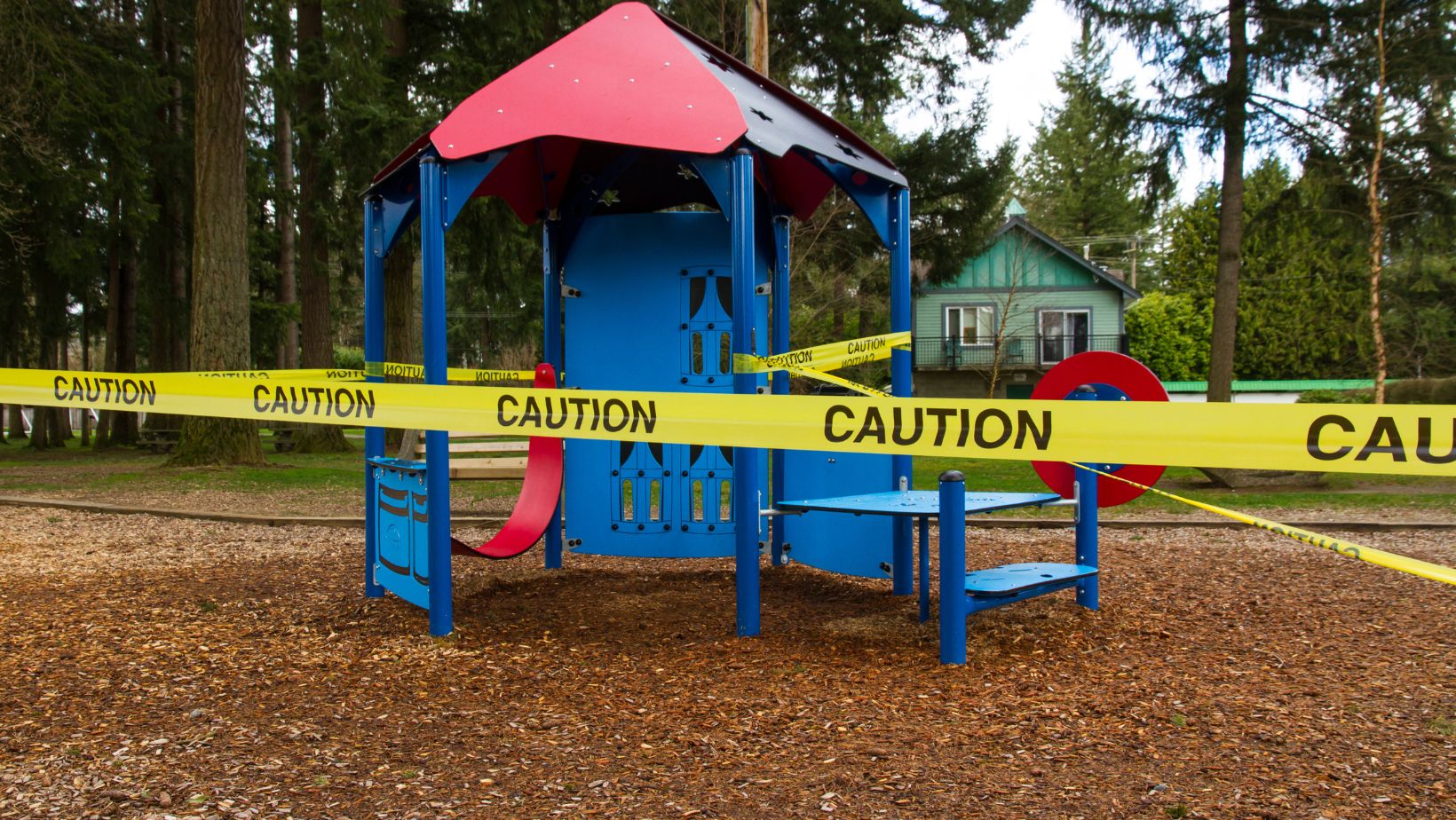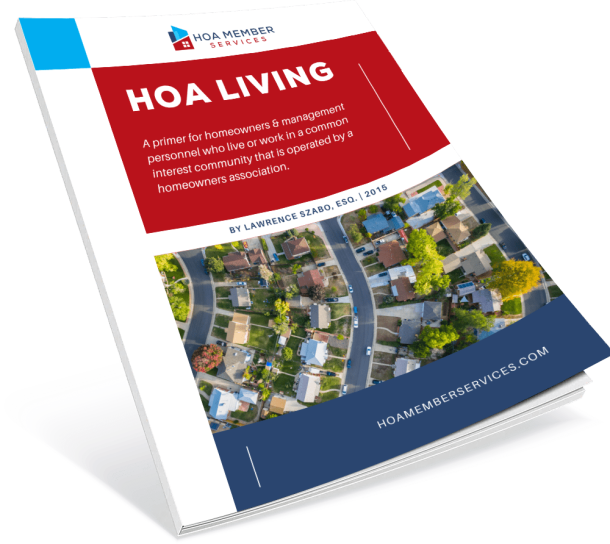Imagine it’s a peaceful Sunday morning, and you’re enjoying your coffee on the porch. Suddenly, a storm rolls in, wreaking havoc and leaving a trail of destruction.
As a member of your HOA, you might find yourself thinking, “Who’s going to pay for the damages?” It’s a question that can catch many off guard.
HOAs are groups of homeowners who band together to maintain the beauty and order of shared spaces within the community. But what happens when things go wrong—like our storm scenario?
That’s where we stumble upon the big question: Do homeowners associations need insurance?
The short answer is yes, they do, and for good reason! Having the right insurance can protect the community’s assets and provide peace of mind for everyone involved.
So, if you’re an HOA member or thinking about becoming one, stick around for some valuable insights on why insurance is a must-have for your community.

Understanding HOA Insurance
Before we get to why HOAs need insurance, let’s talk for a moment about how HOA insurance works.
First off, don’t get homeowners association insurance mixed up with homeowners insurance. While they sound similar, and it can be confusing to tell them apart at first glance, they’re two totally different things.
Let’s break it down.
What is Homeowners Association Insurance?
HOA insurance, sometimes called HOA master policy, is a type of insurance that covers the common areas of a condominium or community governed by an HOA. This includes the exteriors of buildings, lobbies, hallways, recreational facilities, and other shared property.
Think about the clubhouse where your kids play, the pool where you unwind, and the pathways you jog every evening. HOA insurance is a safety net for these areas, making sure they’re protected and maintained without any financial hits to the community.
So, if a storm causes damage to the clubhouse roof or someone gets injured at the community pool, HOA insurance steps in to cover these incidents.
How Does It Differ from Homeowners Insurance?
Now, you might wonder how HOA insurance is different from the homeowners insurance you already have for your house. Here’s where it often gets tangled.
Homeowners insurance covers everything related to you—your home, your personal belongings, and your personal liability for accidents that might happen inside your home.
But HOA insurance? That’s all about the community. It’s the collective umbrella safeguarding the community’s shared assets and areas everyone uses and enjoys.
| Homeowners Insurance | HOA Insurance | |
| Coverage Area | Individual homes and personal belongings | Common areas and shared property |
| Who Pays Insurance Premium | Individual homeowners | The HOA, funded by HOA fees |
| Types of Coverage Included | Dwelling, personal property, liability | Exterior damage, common area liability, directors and officers |
For example, if a big tree crashes down on the community pool house, HOA insurance kicks in to handle the repairs, keeping the pool ready for summer fun. But if that same tree falls on your home? That’s where your homeowners’ insurance comes to the rescue.
Now that we have a clear picture of HOA insurance let’s see how it can help an HOA steer clear of trouble.
Common Pitfalls Faced by HOAs
Here’s a look at some common challenges HOAs encounter that insurance coverage can take care of:
1. Property Damage
Property damage is a nightmare for any HOA. They often oversee common areas and facilities that can fall victim to weather conditions, vandalism, or just plain wear and tear.
Natural disasters like hurricanes can cause significant damage to community property. Plus, there’s the ever-present threat of a few rebellious teenagers defacing the new playground equipment.
Even without such dramatic events, everyday usage slowly but surely deteriorates community assets.
2. Liability Risks
Liability concerns are another big issue. Common areas like parks, pools, and walking paths are fantastic for bringing residents together but can also be hotspots for accidents.
What if a child slips near the pool and breaks an arm? Or a jogger trips on a cracked sidewalk and decides to sue the HOA for negligence?
These incidents can lead to hefty medical fees and legal expenses. Without proper liability coverage, an HOA could find itself in a financial bind.
3. Financial Risks
Then there are financial risks. HOAs handle significant amounts of money, which can unfortunately attract bad actors. Imagine discovering that your trusted treasurer has been embezzling funds, or that a hacker has siphoned off thousands from the HOA’s account.
While unfortunate, these threats exist and can severely impact the community’s financial health. Mismanagement of funds, whether through theft, fraud, or simple incompetence, can devastate an HOA’s finances.

What Kinds of Insurance HOAs Need To Mitigate These Risks?
So, what does the HOA insurance policy cover? Well, it can cover the cost of all of the nuisances mentioned above and more! Here’s how HOAs can protect themselves and sidestep these issues by choosing the correct insurance coverage:
1. General Liability Insurance
Liability coverage is the backbone of an HOA’s insurance portfolio. It handles liability claims for injuries and accidents that happen on common property.
For example, if a visitor slips and falls in the community gym, this insurance can cover liability expenses such as their medical bills and any legal fees that might arise if they decide to sue.
It’s like having a lifesaver on standby, ready to jump in and catch you when things go awry.
2. Property Insurance
Next up is property insurance—the guardian of all the physical assets. This insurance covers damages to the HOA’s property, from the community hall to the pool area.
Let’s say there’s a pipe burst in the community’s sprinkler system. Does the HOA insurance cover water damage caused by it? Absolutely, property insurance takes care of it all.
And what if nature decides to send a downpour, causing the clubhouse roof to leak? Well, rest easy knowing that the repairs and replacements for property damage won’t drain the HOA’s reserves.
3. Directors and Officers (D&O) Insurance
HOAs are often led by a board of volunteers who make important resolutions for the community. But imagine being a dedicated board member who’s being sued for a decision made with the best intentions.
D&O insurance is crucial here. It’s there to protect the members from personal losses if they are sued for decisions made while on the board. It covers legal costs and potential settlements arising from their verdicts.
For instance, if a homeowner sues the board over a decision to increase dues, D&O insurance can cover the cost of legal defense. This ensures that HOA board members can make decisions without fear of personal financial ruin.
4. Fidelity Insurance
Last but certainly not least is fidelity insurance, which protects against financial misconduct. This type of insurance covers losses caused by dishonest acts like theft or misuse of funds by board members or employees.
Fidelity insurance would cover the lost money, helping the HOA recover quickly without having to impose a special assessment on homeowners.
It’s the financial protection that every HOA needs to deal with white-collar crimes.

Why Having Insurance is Crucial for HOAs — The Benefits
We’ve discussed what HOA insurance covers, and that gives us the essence of its significance. However, seeing how it impacts other areas of the community as well is still important.
Imagine living in a beautiful neighborhood where the grass is always green, the pool is sparkling clean, and there’s a sense of camaraderie among neighbors.
We all love a place where children play freely in parks, residents stroll through manicured gardens, and everyone enjoys a sense of security.
But this idyllic setting doesn’t just happen by chance; it requires careful management and robust insurance coverage.
Let’s dive into why every HOA needs insurance and how it can save the day when the unexpected happens.
Here are some advantages of HOA insurance:
1. Protection from Lawsuits
You know how sidewalks outside your community center can turn into a slick sheet of ice on those crisp winter mornings. What if a visitor, unaware of the slippery surface, takes a nasty fall?
Or maybe there’s a neighborhood event at the clubhouse, and someone trips over a loose tile. Without insurance, these incidents could lead to serious financial strain on the HOA due to potential liability claims.
Insurance acts as a shield, covering legal fees and settlements so that one unfortunate slip-and-fall doesn’t derail the budget of a homeowners association.
Here’s a real-life example of a similar situation that perfectly highlights the importance of HOA insurance:
- An HOA member in Texas experienced a trip-and-fall accident at the community clubhouse. He tripped over a barbell set that blended in with the floor color, leading to severe injuries.Unfortunately, he lost his job due to these injuries and decided to seek compensation from the HOA. He consulted an attorney at Just Answer, where Jan, a legal expert, explained:“Your HOA has insurance for such an event. If you and your attorney decide to sue the HOA, their Insurance Defense attorney will represent the HOA. Over 95% of all cases settle outside of court and do not go to trial.”
2. Financial Security
Life is full of surprises, and not all of them are pleasant. When a sudden weather hazard like a storm causes significant damage to communal structures or a fire breaks out in a shared facility, the repair costs can be staggering.
These unexpected expenses can be a huge burden on any HOA’s wallet. Insurance provides a barrier against these financial shocks, ensuring that the HOA can manage property damage repairs and replacements without having to scramble for funds.
This financial security means the HOA can maintain a balanced budget, invest in improvements, and keep everything running smoothly, rain or shine.
3. Peace of Mind for Residents
One of the biggest perks of having HOA insurance is the peace of mind it brings to residents. Homeowners can sleep a little easier knowing that the HOA is well-insured and their community is prepared for the unexpected.
It’s comforting to know that if something goes wrong, there’s a plan in place to handle it without causing chaos or extra assessments.
This reassurance translates into a better overall living experience, making the HOA community a safer and more pleasant place to call home.
Imagine planning a big neighborhood event, like a summer barbecue or a holiday party, without the constant worry of what-ifs:
- What if someone gets hurt?
- What if there’s property damage?
HOA Insurance takes these worries off the table, allowing residents to fully enjoy their social life.
4. Uninterrupted Services
Community life thrives on the smooth operation of services and maintenance. The common areas that you love—parks, pools, clubhouses—all require regular upkeep.
Now, imagine a situation where a vital amenity is interrupted because of the costs of an unforeseen incident. What if, due to lack of funds, the HOA had to pause essential services like garbage collection, pool maintenance, or landscaping?
Well, the community’s appeal would quickly decline. With HOA insurance, repairs are handled swiftly so that services and maintenance activities continue without hiccups.
This ensures everyone can enjoy their favorite amenities, even when the HOA faces unexpected expenses. It’s all about keeping the community’s heartbeat humming along smoothly, no matter what happens.
5. Boosted Community Value
HOA insurance doesn’t just protect; it enhances the community’s overall worth. Prospective homeowners often look for neighborhoods where they feel safe and secure, and comprehensive HOA insurance coverage is a big part of that equation.
An HOA that’s well-insured is seen as responsible and proactive. These are the qualities that make the community a lot more vibrant and attractive to potential buyers.
They are more likely to invest where they feel confident that issues will be managed efficiently and without financial turmoil. This can lead to higher property values and a stronger sense of pride among residents.
It’s like adding an extra layer of sparkle to your neighborhood, making it a shining example of a well-managed and desirable place to live.
6. Less Financial Burden on Homeowners
Now, let’s consider how the absence of HOA insurance might directly affect individual homeowners. Let’s say a homeowners’ association was not insured, and an unexpected expense or lawsuit was hit.
Without proper coverage, any sudden costs could take a toll on a homeowner’s budget—be it legal expenses, repairs after natural disasters, or major replacements.
The costs would have to be covered somehow, and that often means increased fees or special assessments for the homeowner.
Imagine getting a notice that you need to pay an extra $500 this month because some shared space needs urgent repairs, and there’s no HOA insurance to cover it. That would be unfortunate!
7. Prevention of Conflicts
Without HOA insurance, homeowners face budget strain, which can also increase conflict within the community. When a homeowners’ association imposes sudden, hefty fees to cover legal costs or major repairs, it creates tension and dissatisfaction among neighbors.
People might start to argue over who’s responsible for what or why they have to bear the brunt of these out-of-the-blue costs. HOA insurance, in this sense, acts as a buffer, preventing such financial surprises and helping to maintain harmony among neighbors.
It’s like having a peacekeeper who ensures everyone’s contributions are predictable and fair, keeping the community spirit positive and cooperative.
Do Homeowners Associations Need Insurance? — The Final Verdict
So, does a homeowners association need insurance? Long story short, the answer is a resounding YES!
Let’s face it — running an HOA isn’t just about organizing neighborhood barbecues or planting flowers in common areas. It comes with a hefty load of responsibilities, from keeping common areas pristine to managing the community’s finances.
And to make sure the entire community is covered against unforeseen mishaps, HOAs constantly have their hands full. All this can feel like juggling a dozen flaming torches while riding a unicycle.
Unfortunately, things can go wrong, but this is where the importance of having adequate HOA insurance coverage becomes glaringly obvious. It can cover the cost of potential disasters and keep your community stable and secure.
So, it’s high time you take a closer look at your HOA insurance policy and make sure everything’s in place.
Feel stuck or unsure where to start? Need more help with HOA insurance requirements or anything else HOA-related? We’ve got your back!
Check out our HOA Team Membership Plan before you go ahead and look for an HOA insurance provider. Join us today for some wonderful guides and expert assistance to ensure your HOA is well-protected and thriving! We’re here to make things easier for you!

